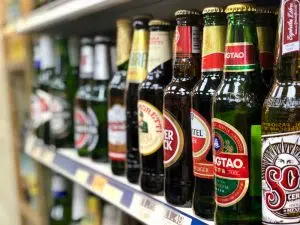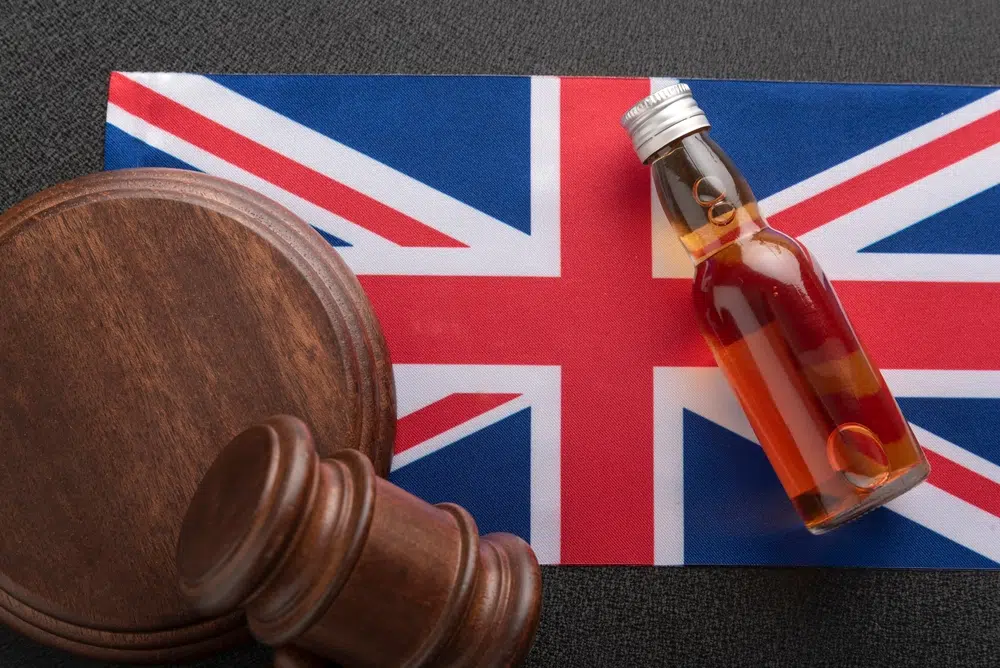
The sale of alcohol is regulated by the Licensing Act 2003. This Act sets out the rules and regulations that businesses selling alcohol must follow. These include things like specifying the hours during which alcohol can be sold, and ensuring that all staff who serve alcohol have completed mandatory training.
The Licensing Act also introduced the concept of ‘responsible authorities’, who are able to object to licences being granted if they believe that doing so would impact negatively on public safety or public order. Some of the responsible authorities in the UK include the police, trading standards, and local residents’ associations.
Businesses that sell alcohol without a valid licence are breaking the law and can be fined or prosecuted. In some cases, their premises may also be closed down. If you’re thinking about setting up an off-licence in the UK, it’s important that you make sure you’re familiar with the Licensing Act and all other relevant legislation. Failure to do so could result in serious legal consequences.
To comply with all legal requirements, the licensed trade is subject to a great deal of regulation. These are some of the areas that may be relevant to you.
What licences does an off-licence need?
Here is a rundown of all the licences your off-licence will need to be aware of.
Alcohol licensing
If you plan to sell alcohol from a premises with a premises licence, then you must also obtain a personal license. As a condition of receiving your license, you must comply with certain conditions; some are standard, and some may be imposed by the licensing authority. Local licensing authorities issue licenses. More information can be found on the Gov.uk website.
Personal and premises alcohol licences are granted by local licensing boards in Scotland. The Scottish Government website provides more information about alcohol licensing in Scotland.
Licences for alcohol are granted by county courts in Northern Ireland. As far as alcohol off-sales are concerned, Northern Ireland has a set number of off-licences, and no new licenses are being granted. As a result, you’ll usually have to look for someone who is giving up their license or selling it. The NI Direct website has more information about alcohol licensing in Northern Ireland.
Alcohol wholesaler registration
As an alcohol wholesaler, you must register with HMRC if you intend to sell alcoholic drinks other than on an ‘incidental’ basis (sales you don’t solicit, or sales you are not aware are trade sales). For example, HMRC will verify that you have never been involved in the illicit trade of smuggled goods before you can operate as an alcohol wholesaler.
On the HMRC website, you can find more information about the Alcohol Wholesaler Registration Scheme.
Other matters
The local environmental health department will require you to register as a food business if you plan to sell food products. Your premises will be inspected, and you will be helped to comply with the regulations regarding food safety and hygiene.
Music Licences from PPL PRS Ltd are required if you plan to use copyrighted music in your business. On the PPL PRS website, you can pay the annual fee.
The Information Commissioner’s Office (ICO) requires that you register if you use a CCTV system at your store. Data protection has been enhanced by the General Data Protection Regulation starting in May 2018. A Code of Practice for CCTV users can be found on the ICO website for more information about data privacy and protection laws.
Your local council may require a pavement sign permit or something similar if you place an advertisement A-board outside your shop.
A Scottish Tobacco Retailers Register must be registered by any business selling tobacco products in Scotland. Registering online is free and doesn’t require a fee. The Belfast City Council is responsible for registering residents in Northern Ireland.
A Facility Identifier Code and an Economic Operator Identifier Code are required for all retailers selling tobacco products.
Alcohol licensing legislation
Regulations governing the sale of alcohol include:
- Licensing Act in England and Wales
- Licensing (Northern Ireland) Order
- Licensing (Scotland) Act in Scotland
Licensing and compliance with licensing conditions are required if you intend to sell alcohol. Here are some resources you can use to learn more about the licensing of alcohol in the UK:
- The Government website
- NI Direct
- The Scottish Government website
Local licensing authorities can also provide information.
Alcohol cannot be sold to people under the age of 18. You’ll need to be vigilant to ensure that you and your staff adhere to the law since many under-18s try to buy alcohol – sometimes by having an older person buy it for them. An effective age verification policy is mandatory in England and Wales due to licensing conditions. There are a number of identification schemes that can help you to do this effectively, including Challenge 21, PASS, and CitizenCard. Anyone who appears to be under 25 in Scotland must be checked for their age using a scheme like Challenge 25.
In England and Wales, selling alcoholic drinks below the value of excise duty plus VAT is illegal. Scottish law prohibits quantity-based discount promotions such as ‘buy one, get one free’ deals on alcoholic drinks as well as setting a minimum unit price for alcohol.
Tobacco products
The sale of tobacco products to young people under the age of 18 is prohibited, including cigarette papers. As well as carrying a UK duty-paid fiscal mark and the necessary health warnings, all tobacco products you sell must carry a UK duty-free fiscal mark. Displays of tobacco and point-of-sale advertising are prohibited in shops. In May 2016, standardised plain packaging will be required for all tobacco products sold in the UK.
A transitional period of one year will allow old stock to be ‘sold-through’, but all cigarettes must be sold in standard packs from May 2017. A Facility Identifier Code and an Economic Operator Identifier Code are required for all retailers who sell tobacco products. Your local trading standards department can provide you with more information on tobacco legislation.
You must also be 18 years of age to use lighter refills containing butane gas. Under-18s must not be sold lighter fluids or other substances that may be used as intoxicants.
DVD hire
Renting DVDs or computer games must be clearly marked with the appropriate classification symbol, such as PG (parental guidance). People who are too young shouldn’t rent age-restricted DVDs or videos.
Renting out titles that are distributed as retail copies is against copyright law – you must obtain rental stock that is distributed under a rental copyright licence.
General retailing legislation
Retail outlets are regulated by a variety of laws that protect the consumer’s interests. The retail price of all goods must be clearly displayed, and goods should not be described in a misleading way. It is your responsibility to ensure that all goods and services are fit for their intended purpose and of satisfactory quality. If your business is subject to general retailing legislation, your local trading standards department can provide you with more information and advice.
Food safety
There is strict food safety legislation that must be followed by all businesses in the food industry. A local authority’s environmental health department must be notified before you open a food business. To ensure your operating areas are hygienic and compliant with food safety regulations, your local environmental health officer can provide advice and guidance.
Carrier bag charge
The charge is 5 pence in England, but small and medium-sized businesses are exempt. The gov.uk website provides detailed guidance.
In Wales and Scotland, retailers are required to charge their customers at least five pence for a single-use carrier bag. Plastic, paper, and plant-based starch-based single-use bags all fall under this category. Detailed guidance can be found on the Gov.Wales and Zero Waste Scotland websites.
In Northern Ireland, retailers must levy 5 pence on all bags with a retail price of less than 20 pence (including free bags), regardless of whether they are single-use or reusable.
Health & Safety, fire
In the workplace, you are required to follow safety regulations and fire safety legislation.
Employment legislation
Employment legislation must be followed by anyone who hires staff. Employment laws include employment contracts, pay, working hours, holidays, sick leave, maternity leave, paternity leave, discrimination, discipline, grievances, dismissals, redundancies, and employment tribunals.
Insurance for an off-licence
Insurers or insurance brokers can explain to you what insurance cover you must have by law, and what other coverage you should consider.
It is likely that the insurance company will want full details about the security measures you will take before agreeing to provide coverage.
Industry-specific insurance packages are often available through trade associations at discounted rates.
Lee Jones is a seasoned Business Finance Specialist with over two decades of invaluable experience in the financial sector. With a keen eye for market trends and a passion for helping businesses thrive, Lee has become a trusted advisor to countless organizations seeking to navigate the complexities of finance.


